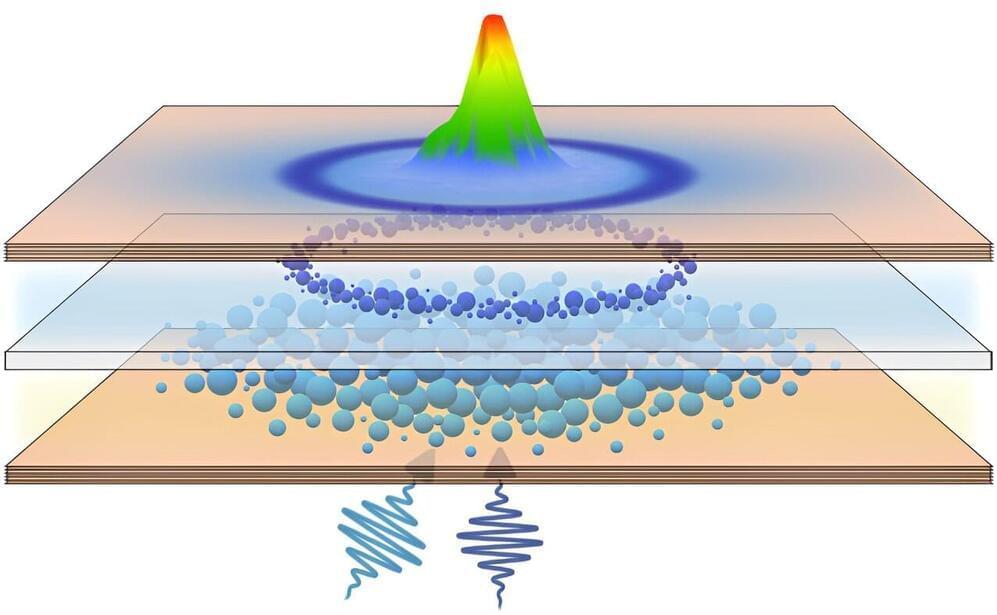In a quantum leap toward the future of unconventional computing technologies, a team of physicists made an advancement in spatial manipulation and energy control of room-temperature quantum fluids of light, aka polariton condensates, marking a pivotal milestone for the development of high-speed, all-optical polariton logic devices that have long held the key to next-generation unconventional computing, according to a recently published paper in Physical Review Letters.
Polaritons, hybrid particles formed by the coupling of light and matter, are usually described as a quantum fluid of light that one can control through its matter component. Now, researchers have taken a monumental step forward by introducing a novel approach for active spatial control of liquid light condensates at room temperature.
What sets this development apart is the ability to manipulate polariton condensates without relying on the commonly utilized excitation profiles of polaritons. The scientists accomplished this feat by introducing an additional layer of copolymer within the cavity—a weakly coupled layer that remains nonresonant to the cavity mode. This seemingly simple yet incredibly ingenious move has opened the door to a wealth of possibilities.
